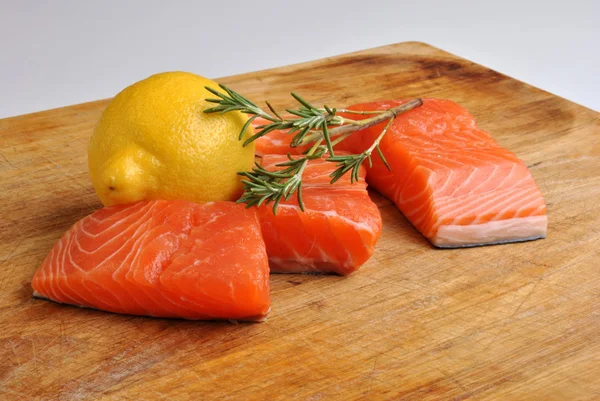What do you know about benefits or disadvantages of Eating Salmon Before Bed? Does salmon help you sleep or make you sleepy? Stay with us on the EatingBeforeBed to check out these things about salmon.

Due to its high content of omega-3, salmon reduces the release of stress hormones and promotes relaxation. If you don’t like the taste of salmon, you can replace it with other fish. In addition, fish contains a lot of vitamin B6, which strongly promotes the release of the sleep-inducing hormone melatonin.
Also, salmon contains the hormone leptin, which curbs your appetite. Salmon is easy to prepare and you can use it with all dishes, so it’s worth trying it out.
Eating salmon before bed
According to researchers, eating sea fish such as salmon before bed has amazing positive effects on the problem of insomnia or lack of sleep, which we’ll discuss below.
Insomnia or lack of sleep is one of the most common problems that affect many people. This problem is becoming more and more evident in the modern lifestyle. The cause of these problems is a large amount of mental worries, wrong diet, stressful jobs with high psychological pressure, excessive use of smartphones and spending a lot of time on social media.
Getting enough sleep, healthy eating habits and mental rest in a healthy lifestyle are the three sides of this style triangle. Paying attention to the health of the body is more important than other issues.

Does salmon help you sleep
Fish and other seafood like shrimp are rich in B vitamins, especially vitamin B6 and vitamin D. As you know, the group of B and D vitamins is very effective in treating depression and plays an important role in melatonin production. For this reason, it can be said that eating sea fish, shrimp and other aquatic animals improves the production of this hormone, thus relieving people from lack of sleep or painful insomnia at night.
Learn more: What is melatonin?
Melatonin is naturally secreted during sleep. This hormone is produced by the pineal gland, a pea-shaped structure in the center of the brain. This hormone fills our eyes with darkness. At night, melatonin is produced to regulate the sleep-wake cycle.
The amount of melatonin produced by the body decreases with age. This is why teenagers have fewer sleep problems than older people.
Most people suffer from yellow skin and puffy eyes after a few nights of sleep deprivation. Long-term sleep deprivation leads to dull skin, fine lines, and dark circles under the eyes. When you don’t get enough sleep, your body produces higher amounts of the stress hormone cortisol. High amounts of the hormone cortisol break down the skin’s collagen. Collagen is a protein that keeps skin smooth, firm and young.
Eating sea fish and other aquatic animals contains large amounts of vitamin E and vitamin C, both of which are powerful antioxidants, and their collagen-building and anti-malarial effects have been shown to prevent skin inflammation and help keep skin young.

Properties of omega-3 fatty acids in insomnia
Regular consumption of sea fish (twice a week) is a healthy diet that brings many benefits due to the abundant omega-3 fatty acids, which can be mentioned below:
- Improvement of brain function
- Preventing heart disease (because these fatty acids are unsaturated and are a good substitute for fatty red meat)
- Fighting depression
- Reducing joint and bone inflammation
- Eating fish
The effect of omega-3 on sleep quality
Omega 3 consists of three fatty acids called DHA, ALA and EPA. These fatty acids aren’t produced in the body and must be ingested through food. Research has shown that DHA stimulates the release of the hormone melatonin. So the higher the level of DHA in your body, the more melatonin is produced in the body.
Does salmon make you sleepy
One of the factors that lead to boredom and fatigue is undoubtedly lack of sleep, but diet also plays an important role in making you feel tired and sleepy. Although some foods are useful, they make you sleepy. For this reason, it’s not suitable to consume these foods in the middle of the day when you’re trying to stay awake.
Fish such as salmon, halibut, and tuna are rich in vitamin B6. The body uses vitamin B6 to make melatonin (the sleep hormone), which is why eating Salmon before bed makes you sleepy. Fish are natural sedatives, so it’s better to consume these nutritious foods before bedtime to make you feel more tired and sleep peacefully.

How much salmon can you eat in a day
Salmon is rich in high-quality protein. Like omega-3 fats, protein is an essential nutrient that must be obtained from the diet. Protein has important functions in the body, such as helping to heal after an injury, protecting bones, and maintaining muscle mass during weight loss and aging. Recent studies have shown that for optimal health, you should consume at least 20 to 30 grams of high-quality protein in every meal. 100 grams of salmon contain 22 to 25 grams of protein.
Summary: Your body needs protein to heal injuries, protect bone health and prevent muscle tissue breakdown. 100 grams of salmon provides 22 to 25 grams of protein, which your body needs.
As you know, it’s good to consume everything in moderation. What is recommended for all people is to have fish in their diet at least 2 to 3 times a week. Of course, it’s possible to increase the consumption.
Note: Fish consumption in children and pregnant and lactating women has a certain amount. Pregnant and lactating women can consume at least 340 grams of mercury-free or low-mercury fish per week.
For children, it’s enough to consume it once a week.
Because the amount of mercury in fish can affect the health and growth of children and fetuses.
Eating too much fish containing mercury can cause acute neurological diseases, balance disorders and forgetfulness in the elderly.
You can eat fatty fish rich in omega 3 like sardines, salmon, mackerel and herring only 2 times a week. Sardines and salmon contain the least amount of mercury.
Note: The amount of fish consumed per week may vary depending on caloric needs, age and physical activity.




